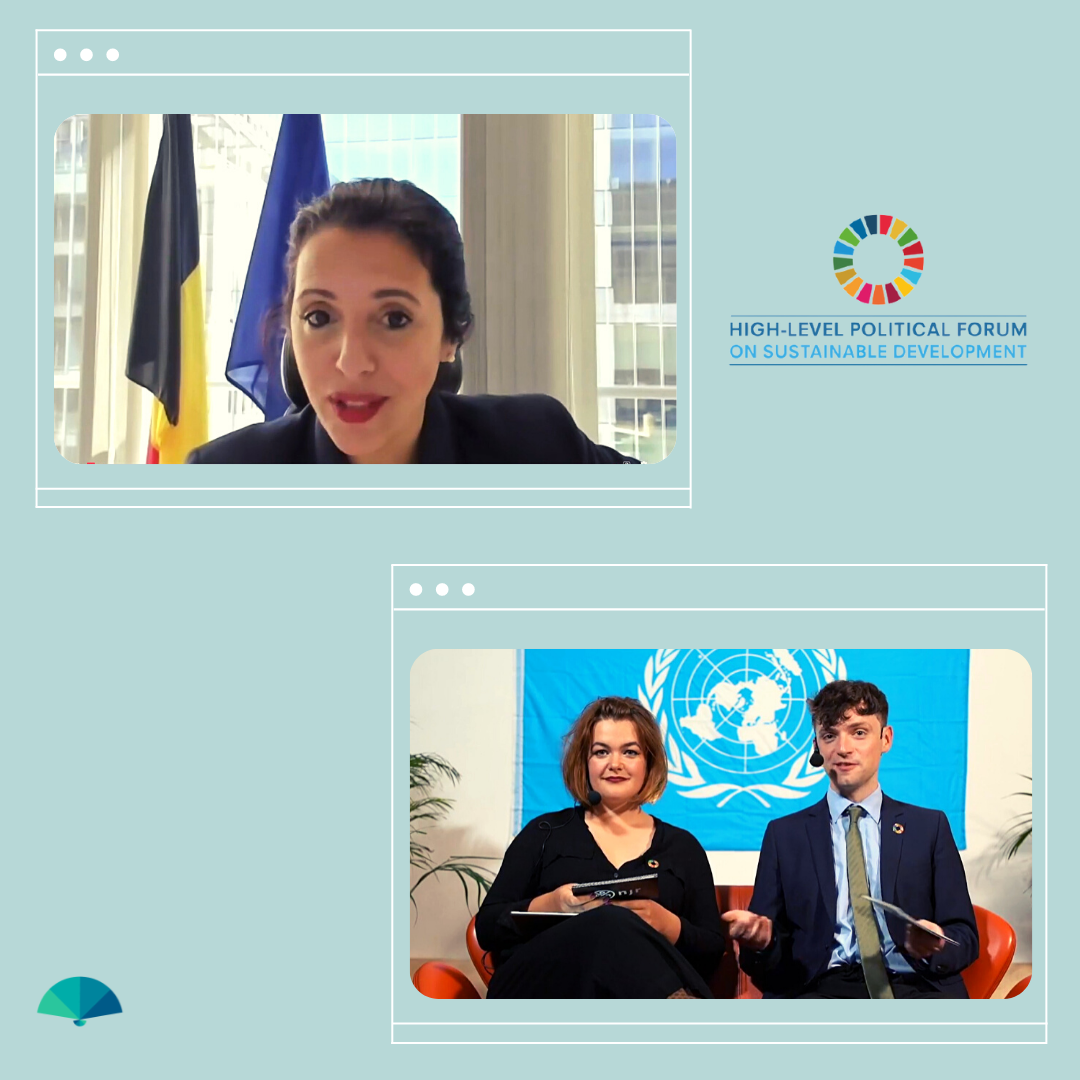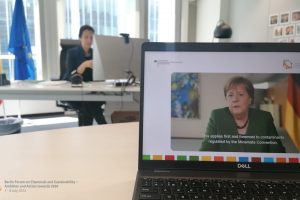Side Event High-Level Political Forum 2021 des Nations Unies | Climate change and human rights

Dit event wil onder meer de nadruk leggen op het belang van het klimaatvraagstuk vanuit het oogpunt van de mensenrechten en inzicht geven in de door het internationaal recht geboden mogelijkheden op het vlak van klimaatrechtvaardigheid. De organisatoren achten het onder meer belangrijk dat de jongeren als volwaardige ‘actoren’ worden beschouwd.
De Minister is opgetogen met dit initiatief, dat actiemogelijkheden in het daglicht stelt voor een hogere klimaatambitie, meer klimaatrechtvaardigheid en een grotere intergenerationele billijkheid.
Speech van de minister Khattabi :
Excellencies, ladies and gentlemen,
Dear participants,
As Belgian Federal minister of Climate, Environment, Sustainable Development and Green Deal I am delighted to welcome you to this exciting youth-led side event on climate change and human rights.
The involvement of youth is a priority for Belgium. Not only from a participatory perspective, but also because intergenerational solidarity is a fundamental building block of sustainable development and the 2030 Agenda.
I am therefore proud that each year our youth representatives are part of our national delegation to the High-Level Political Forum on sustainable development, and contribute substantially to the various sessions and preparatory meetings of this forum.
Over the years the youth delegates have built quite a reputation for organizing interesting side-events on important topics during the HLPF. I think we can all agree that today’s agenda lives up to that fame. I would like to thank each and every one of you for the hard work, commitment and passion.
The 2030 Agenda and the SDGs offer us a clear path forward for a development that meets the needs of the present without compromising the ability of future generations to meet their own.
However, we are unfortunately not on track to meet the SDGs. The recovery from the coronavirus pandemic offers us an opportunity to make our society more climate-friendly, more sustainable, and thus more resilient. By building back greener and better we should create via a just transition a low-carbon economy. Together with all relevant actors in the Decade of Action for the SDGs we can shape a future that is better for everyone while leaving no one behind.
Climate change and human rights are indeed clearly intertwined.
The Paris Agreement, a historic milestone in many perspectives, is also the first multilateral environmental agreement that makes a direct link to human rights.
In light of the negotiations running up to COP 26 in Glasgow, all parties should be mindful of this link with human rights when, for example, considering article 6. In order to avoid malpractices as we’ve sometimes seen in the context of its predecessor the Clean Development Mechanism, the article 6 should integrate human rights.
Even more importantly, far away from negotiation rooms, there is no doubt that it is a challenge for all Parties to make this happen on the ground, where vulnerable communities and individuals are confronted with the impacts of climate change and the consequences of mitigation and adaptation policies.
All actors should be mindful of the impact their policies and practices have on human rights; state and non-state actors. There has been an increase in climate reporting regarding public investments and across corporate and financial institutions since the introduction of the Paris Agreement in 2015. But there is a need for more and better climate disclosures, moving away from static, compliance-based reporting to due diligence reporting models. Such models include disclosing how climate issues have been integrated in governance, strategy and risk management and what practical actions have and can be taken to avoid related risks
Furthermore we know that climate change is a threat multiplier. Climate Change interacts with other risks and threats increasing the risk of insecurity, crisis and even conflict. These interactions can take many forms. Droughts, floods and failed harvests can lead to volatile food prices, food shortages and political upheaval. It can exacerbate poverty (and thus SDG1), force people into unemployment (SDG 8) or even displacement. This will have knock-on effects on people’s well-being (SDG 3), wealth inequality (10) and gender equality (SDG 5).
Therefore, climate ambition, is an overall imperative to ensure the respect for human rights. We must do our utmost to limit climate change to well below 2°C, and spare no effort to limit it to 1,5°C.
Just like for sustainable development the concept of intergenerational justice stands front and center when it comes to Climate Change. The sobering truth is that currently we are not doing enough to fight the climate crisis. We must step up our actions to ensure intergenerational justice, both to achieve the SDGs through the Decade of Action as well as to achieve our Climate goals.
Once again, I would like to thank you for organizing this session and giving me the honor to open it.
I wish you all a successful event and I look very much forward to listen to the discussions and hearing the conclusions.


